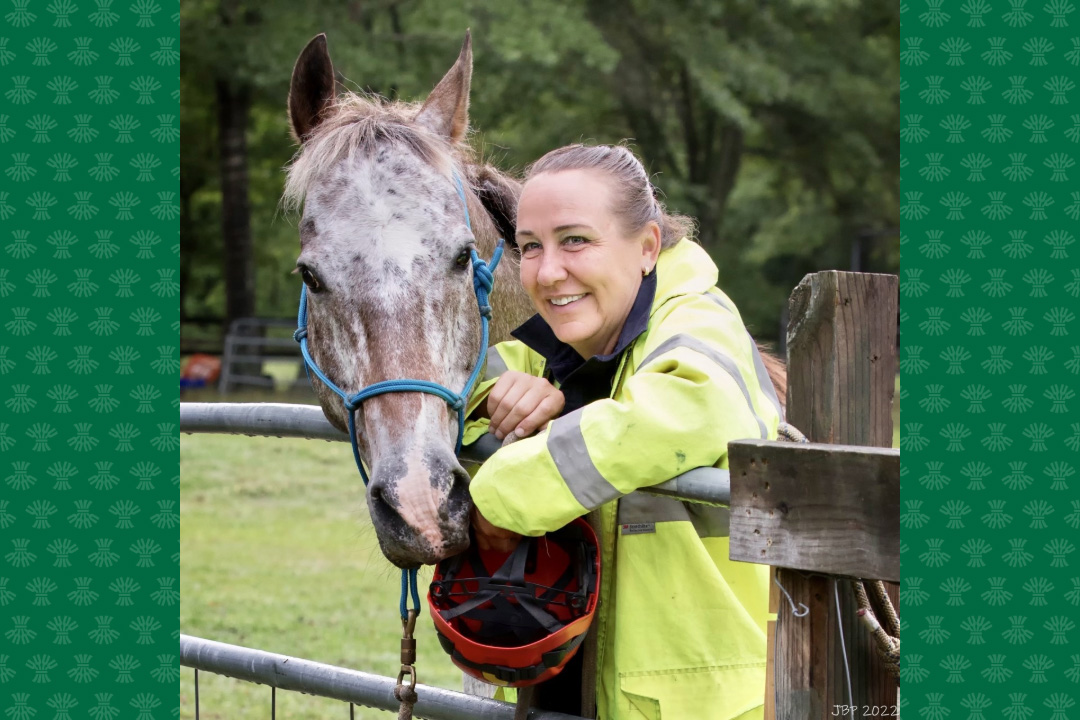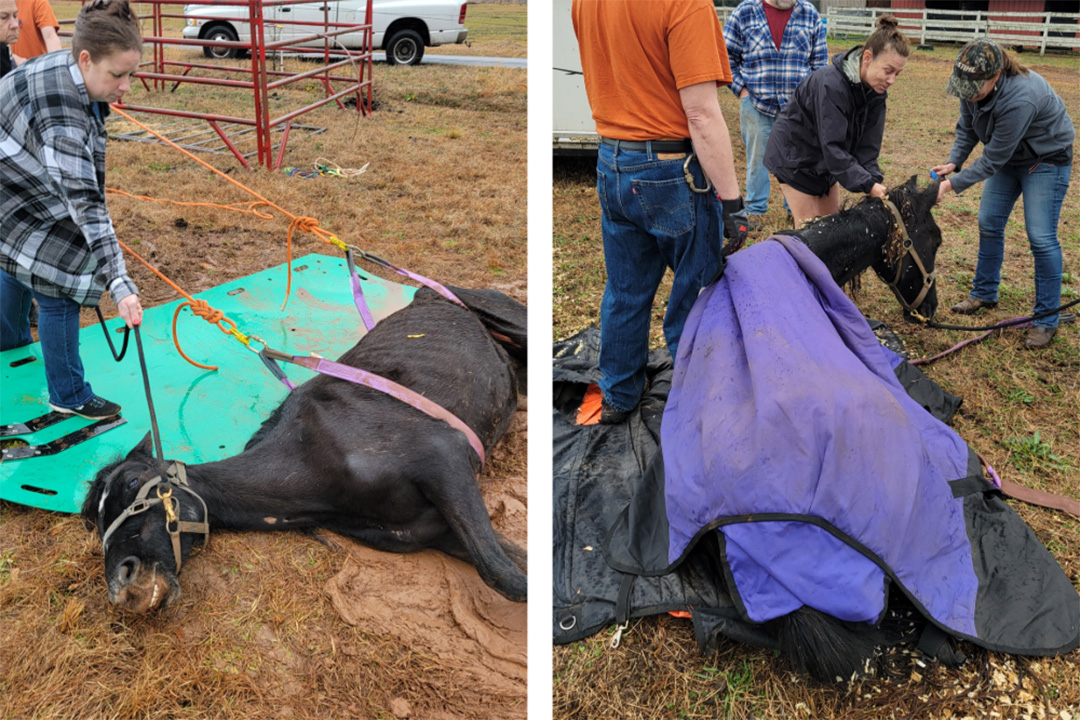
Husted wants to help save your horses and your barn
Ask Dr. Rebecca (Gimenez) Husted to describe her work and she’ll tell you that she’s “the chief cook and bottle washer” of Technical Large Animal Emergency Rescue, Inc. (TLAER) — an organization that guides animal owners in handling and preventing emergencies.
By Cat ZensAsk Dr. Rebecca (Gimenez) Husted to describe her work and she’ll tell you that she’s “the chief cook and bottle washer” of Technical Large Animal Emergency Rescue, Inc. (TLAER) — an organization that guides animal owners in handling and preventing emergencies.
Husted, who is based near Gray, Georgia, is a primary emergency response instructor. Her goal is to provide animal owners with educational resources so they can prevent accidents such as devastating barn fires and horse-related injuries from occurring at their facilities.
“We’re trying to give people tools to be able to help their animals because every single animal that’s out there somewhere, somehow, it’s attached to a person. Even if it’s a feral horse that’s trapped in a septic tank,” says Husted.
Husted has a variety of skills and qualifications that aid in her work. After completing a bachelor’s degree in biology, she obtained her PhD degree in animal physiology from Clemson University in 1997 where her research focused on the endocrinology of reproduction in mares. She was also a member of the U.S. Army for over 25 years, working in various areas including emergency response planning and leadership.
Since 2012, Husted has been a volunteer support firefighter for the City of Gray Fire Department. With her animal physiology knowledge, she also has connections to the veterinary world and frequently volunteers as a veterinary technologist on top of her other commitments.
“A very rare person has the combination of exposure to the veterinary industry and the credentials to be able to step up in that industry as well as military training and being a firefighter,” says Husted.
Through connections made online, Husted and her organization works with horse owners globally to teach them proper safety methods such as how to load trailers properly and the best evacuation strategies for horses.
“This is a study group — not a prayer group!” is a phrase that Husted emphasizes in TLAER’s Facebook group, which has over 22,000 members. The online group is a place where large animal owners can share their facility issues with others, allowing people worldwide to discuss what they can do better regarding safety.
“Somebody [in the Facebook group] would put up pictures of what they had done for a rescue, and we would pick it apart — the good things, the bad things, and the ‘Oh-my-God-I-can’t-believe-you-just-got-away-with-murder’ things,” Husted explains. The group aims to give experts a platform to address how horse owners' rescue plans and safety strategies can improve.

Husted also delivers in-person presentations about equine safety around the world. In October 2023, Husted was a guest speaker at the Saskatchewan Equine Expo in Saskatoon, Sask., where she delivered three presentations about hidden hazards in barns, emergency planning and disaster preparedness, and barn fire precautions.
Husted has helped countless horse owners plan for emergencies through her organization, with work varying from removing horses from mud and helping owners create barn evacuation plans. Her favourite part of the job is when people are inspired to change their facilities after attending one of her presentations.
“I think that’s my best experiences: somebody who just had the smallest amount of training with an hour or so of exposure [to my talks], asks a few questions, and then they're able to go home and they're able to figure something out.”
Husted especially encourages horse owners to contact their local fire departments to help create a concrete safety plan for their facilities.
“Call your local fire department and have them come down and look around. It doesn’t cost you anything, they’re not going to tax you or send you a bill. They’re going to try to help you.”
Horse owners can contact Husted through the TLAER Facebook group, by email (delphiacres@hotmail.com) or by text (214-679-3629).
